If you’re good with computers and want to protect people from hackers, identity theft, or other online threats, you might want to consider earning your cyber security associate degree.

An associates degree online usually takes 2 years or less to earn and can help give you access to many new jobs.
Editorial Listing ShortCode:
Our world is relying on the online world more and more these days. Most businesses need someone who understands information technology and cyber security to help keep their data safe. According to the U.S. Bureau of Labor Statistics, the job growth for information security analysts is at 31% and is expected to continue growing.
Cyber Security Associate Degree Online
Cyber security is a fairly specialized field, so if you decide to pursue a degree in it, it’s very likely the career field you hope to go into. Within the field of cyber security, the most common jobs are:
- Cyber security engineer
- Cyber security analyst
- Cyber security administrator
- Cyber security technician
- Cyber security consultant
As you can see, the most common jobs have a common theme. Because online cyber security degree programs are designed to give students an overview of skills in computer science, there are other jobs for which you could potentially be qualified after earning this degree, though, including:
- Vulnerability analyst
- Software developer
- Software engineer
- Systems engineer
- Network architect
- Network engineer
If any of these sound appealing to you, earning an Associate in Network Security or an Associate in Cyber Security may be a good choice.
Because most of the career paths for this degree involve cyber security in some way, there’s typically a heavy emphasis on security-based classes in the curriculum. In fact, security-based courses, along with required general education classes, will probably make up the bulk of your schedule. Additionally, you’ll likely take courses in a variety of fields related to computer science.
Courses may include Intro to Computers/Programming, Fundamentals of Networking/Software Development, Statistics, Database Concepts, Program Design and Development, Hardware/Software Support, Information Technology, Server Administration, and more.
If you hope to do well in this particular degree program, it is helpful to be technologically- and computer-savvy. If computers and tech just aren’t your thing, you may not want to attempt this degree.
Being detail-oriented and hyper-focused will also be beneficial as well. Classes in network security and computer forensics are par for the course in this type of program, and they often require intense scrutiny and concentration.
In addition to these traits, it will be helpful to have a love of learning because this is a field that is constantly evolving and improving. You’ll have to keep up. Persistence, curiosity, an analytical mind, grace under pressure, and the ability to put yourself in the mind of a criminal are also good traits to possess if you want to succeed in this field.
Online Cyber Security Associate’s Degree Curriculum & Courses

In addition to general education classes and the computer science classes we mentioned above, there are some major-specific classes that you’ll likely be required to take in this program. We’ve compiled a list of ten of the most popular.
- Fundamentals of Cyber Security: This class is a mixture of coursework and lab work geared towards teaching students the basics of cyber security, particularly how to secure small networks and personal computers.
- Fundamentals of Disaster Recovery and Business Continuity: This course helps students learn the basics of how to recover lost data and keep businesses up and running in the event of a severe cyberattack, disaster, or failure.
- Ethical Hacking: In this class, students are exposed to various hacking techniques in order to recognize and learn to combat them. This can help you put yourself in the mindset of someone trying to break the law and develop the tools to stop them.
- Cyber Competition: This is considered by many to be one of the most important cyber security courses taken in this field because it can help equip you with the techniques and tools hackers most frequently use to undermine someone’s network, site, etc. It can help you learn reverse engineering and reverse hacking skills in order to design your own defense and counterattack scenarios.
- Computer Forensics: This is an intermediate-level course that can help strengthen your digital forensic skills. If you find you enjoy this class more than some of the others, you might consider pursuing an Associate’s in Computer Forensics.
- Routing Theory and Technology: This is an introductory class on router configuration, theory, and technology.
- Computer Maintenance and Forensics I, II, III: These are multiple-tiered forensics classes.
- Networking Security Fundamentals: This is an introductory class on protecting the security of individuals on small and large networks.
- Cyber Law: This class can help you develop an understanding of the principles of the overall legal system that governs the internet.
- Risk Assessment: This course can help you learn how to analyze and assess potential risks or security weaknesses in people’s private computers or businesses’ networks.
Many of the other classes you take will likely build off the foundation these courses provide.
Cyber Security Careers & Salaries
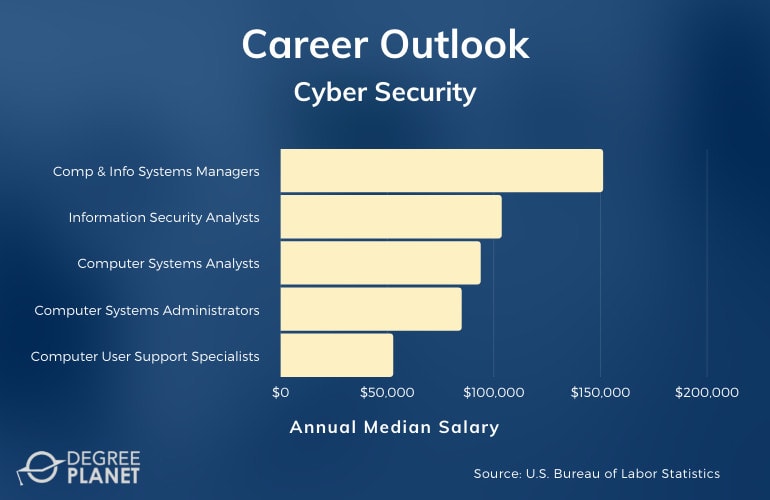
Although most of the jobs that are pursued with this degree are specifically related to cyber security, there are several different job titles within the field of cyber security. Also, the skills that can be learned in a cyber security program are usually comprehensive enough to allow you to branch out into a few other computer science fields.
According to the Bureau of Labor Statistics, here are some potentially lucrative cyber security jobs that people with degrees in this field often pursue. Some employers may require you to have at least a bachelor’s degree in the field to qualify for some of these positions. It depends on the employers and your years of experience.
| Careers | Annual Median Salary |
| Computer and Information Systems Managers | $151,150 |
| Information Security Analysts | $103,590 |
| Computer Systems Analysts | $93,730 |
| Network and Computer Systems Administrators | $84,810 |
| Computer User Support Specialists | $52,690 |
Because the field is so specialized and security specialists are in demand, the pay is generally quite good, even at the associate’s level. Most jobs pay more than the national average, with some paying quite a bit more. If you ever want to increase your annual salary by a larger amount, you may want to consider pursuing a master’s or online PhD in cyber security.
Accreditation

It’s important to ensure the college you enroll in is regionally accredited. Regional accreditation helps to ensure your degree has meaning and will be acceptable to potential employers and colleges you may want to transfer to or go to for higher degrees.
As long as your school is regionally accredited, you shouldn’t have to worry about your degree or your credits being a waste of money and/or time.
There are two other types of accreditation—national accreditation and programmatic accreditation—but they aren’t as all-encompassing or widely recognized as regional accreditation. National accreditation only accredits schools within a certain area, and outside of that area, the accreditation may not be accepted.
Editorial Listing ShortCode:
Programmatic accreditation is given to particular programs of study (such as computer science, business, etc.) rather than whole schools. It’s usually recognized by employers in those particular fields, but it may or may not be recognized by other schools when you go to transfer credits.
Your safest bet is to look for a college or university that has regional accreditation. Then you can be fairly certain you’ll never have to worry about your degree or credits not being accepted anywhere you happen to relocate in the US.
Cyber Security CAE IA/CD Designation
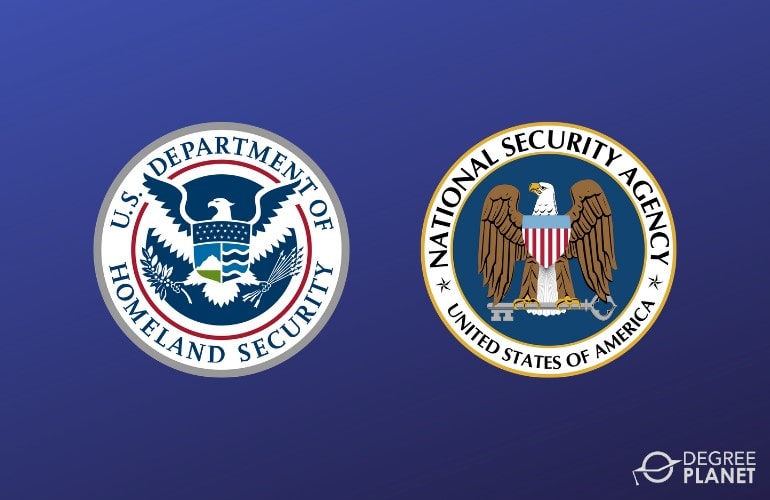
If you’re working towards your degree in cyber security, another important factor to look for is whether or not your school’s cyber security program has been designated as a National Center of Academic Excellence in Cyber Defense (CAE-CD) worthy program. This designation was created by the NSA (National Security Agency) and DHS (Department of Homeland Security).
Only schools with the most rigorous cyber security programs are awarded this designation. According to CyberSecurityMastersDegree.org, both the DHS and NSA worked together to create this program as a way of promoting “higher education and research in cyber defense.”
There are three different designations. They are:
- CAE-CDE: This is for schools with bachelor’s and graduate degree programs.
- CAE-2Y: This is for colleges offering associate degree programs.
- CAE-R: This is for institutions of higher learning who have research programs dedicated to cyber defense.
Programs with this designation are believed to provide the most comprehensive, meticulous education in cyber security there is. By the time you graduate from one of these programs, you should be ready to work in a variety of businesses, corporations, and government agencies. You should also be equipped with the skills you’ll need to protect against even the strongest and most complex cybercrime.
Financial Aid for Online Cyber Security Associate Degrees

When it comes to financial aid, you have a few types you can pursue. Two of your options are loans and grants. You can apply for a Federal Pell Grant and federal loans by filling out the Free Application for Federal Student Aid (FAFSA). These types of financial aid have nothing to do with your grades or standardized test scores. These are awarded based solely on your household’s income.
If you’ve used and abused Federal Pell Grant money in the past or if you’ve defaulted on a federal loan, you might not be eligible for these anymore. However, if you’ve done neither of these things and fall within a certain income bracket, you should be eligible for both.
Editorial Listing ShortCode:
The great thing about the Pell Grant is that it doesn’t have to be repaid. There are also other grants out there that you can pursue, especially at the graduate level, and they generally don’t have to be repaid either.
Loans, on the other hand, must be repaid. Subsidized loans don’t start drawing interest until after you finish or quit college. Unsubsidized loans begin drawing interest immediately upon borrowing them, so it can be very beneficial to borrow only subsidized loans if you have to borrow at all.

Cyber Security Scholarships
The third type of financial aid is scholarships. There are many types of scholarships out there. We’ve compiled a list of a few to consider here:
- Computing Research Association: The Computing Research Association provides several scholarships each year to deserving students entering into a computer science or other computer/tech field.
- Center for Cyber Safety and Education Undergraduate Scholarships: The Center for Cyber Safety and Education provides many scholarships each year to chosen students hoping to earn their degrees in cyber security. This particular link will take you to the undergrad scholarships, but they also have scholarships for women, veterans, and graduate students.
- Information Systems Security Association Foundation Scholarships: The ISSA provides several different scholarships for deserving students majoring in computer science with a focus on cyber security.
- CyberCorps Scholarship for Service: This scholarship is given to chosen students who plan to study cyber security and then work for their local, state, or federal government.
- CompTIA Rising Star: CompTIA provides a number of scholarships to deserving students pursuing careers in technology, but recipients must be CompTIA student members.
You can also look for local or state scholarships, scholarships specific to your college, or those found on various scholarship websites, such as Scholarships.com.

What Can I Do with an Associates Degree in Cybersecurity?
An associate degree in cyber security can help you qualify for a variety of cyber security jobs.
Editorial Listing ShortCode:
You might also qualify for other computer-related jobs, such as system analyst and software developer.
How Much Can You Make with an Associates in Cyber Security?
Your salary will vary depending on where you work and what your job title is, but the average annual salary for people with an associate degree of any type is about $48,776 per year (Bureau of Labor Statistics). Jobs in the field of cyber security often pay more than the average. For example, entry-level information security analysts earn on average $60,060 per year.
Can I Get a Job with an Associate’s Degree in Cybersecurity?
While you may not be able to move into higher-level management positions, you can pursue many jobs within the cyber security field with only an associate degree.

Is Cyber Security a Good Degree?
If you enjoy working with computers and want to protect people and businesses from cyber threats, such as identity theft and hacking, then cyber security may be a great degree for you.
The pay for jobs in this field is typically quite good, usually over the national average, and there’s an extreme need for cyber security experts in the field right now.
Is a Cyber Security Associate Degree Worth It?
Yes, a cyber security associate degree is worth it for many professionals. According to the Bureau of Labor Statistics, computer and information technology jobs are projected to grow 11% over the next 10 years, which is much faster than the average for all occupations. Common careers in this field include computer user support specialists, network and computer systems administrators, systems architects, and information security analysts.
Again, as long as your interests lie in computers, technology, and cyber security, earning your Associate in Cyber Security may be a great way for you to advance your education. You’re also more likely to be hired with an associate’s degree than without one.
The field of cyber security is very in-demand right now and salaries are often quite competitive, which makes a cyber security associate degree worth it for many students.
Universities Offering Associate’s Degree Program in Cyber Security Online
Methodology: The following school list is in alphabetical order. To be included, a college or university must be regionally accredited and offer degree programs online or in a hybrid format.

Bismarck State College has been delivering public education to the people of North Dakota since 1939. Along with a broad array of associate degrees and vocational certifications, Bismarck State College also has two notable bachelor’s degrees.
Students attending BSC can participate in programs such as Computer Science, Cybersecurity, Healthcare, and Education. Some programs are offered through their distance learning platform.
- AAS in Cybersecurity and Computer Networks
Bismarck State College is accredited by the Higher Learning Commission.

Central Texas College has been opened for public education since 1965. Students at Central Texas College have academic options available to help them earn dynamic associate degrees in a variety of majors. CTC connects students on a global level by way of US and European campuses and distance learning platforms.
- AAS in Cyberdefense – Information Assurance
Central Texas College is accredited by the Southern Association of Colleges and Schools Commission on Colleges.

Opened in 1973 as a public vocational college, Cerro Coso Community College works to give all adults access to higher education. With a wide array of program options, CCCC awards associate degrees and workforce certifications to thousands of students annually.
With a mission to work towards equality and social reform, CCCC helps to educate people who are incarcerated as well.
- AS in Cyber Security Technology
Cerro Coso Community College is accredited by the Accrediting Commission for Community and Junior Colleges of the Western Association of Schools and Colleges.

Helping to make higher education accessible to all, Community College of Allegheny County was established in 1966. Today, it consists of four campuses and four learning centers throughout the county that provide hands-on approaches to higher education.
CCAC awards associate degrees, vocational certificates, and diplomas in a variety of academic majors.
- AS in Cybersecurity
The Community College of Allegheny County is accredited by the Middle States Commission on Higher Education.

Dakota State University opened in 1881 as a public university. Now, it is considered one of the best universities in the Midwest (U.S. News & World Report). Offering students program options that lead to associate, bachelor’s, graduate, and doctoral degrees, Dakota State University has top-of-the-line program options, such as Cybersecurity, Technology, Healthcare, and Science.
Many programs at DSC can be completed online.
- AS in Network and Security Administration
Dakota State is accredited by the Higher Learning Commission.

Franklin University was founded in 1902 as a small community-based learning center. Today, Franklin University provides higher education worldwide and is a significant college presence in the state of Ohio.
This private university offers a plethora of undergraduate, graduate, and doctoral degrees in a range of academic majors and minors.
- AS in Cybersecurity
Franklin University is regionally accredited by the Higher Learning Commission.

Georgia Military College was founded in 1879 as a way for military members to earn better training in higher education. Today, Georgia Military College serves military members, veterans, and other community members by providing public education. GMC serves thousands of students worldwide and has a variety of associate and bachelor’s degree programs.
- AS in Cyber Security
Georgia Military College is accredited by the Southern Association of Colleges and Schools Commission on Colleges.

Established in 1958, Guilford Technical Community College is one of the largest public community colleges in the North Carolina system. Offering a range of associate degrees, GTCC also has ESL (English Second Language) courses, GED preparation courses, and vocational education certifications.
Popular programs at GTCC include Cybersecurity, Education, and Business.
- AAS in Information Technology – Security and Data Assurance
Guilford Technical Community College is accredited by the Southern Association of Colleges and Schools Commission on Colleges.
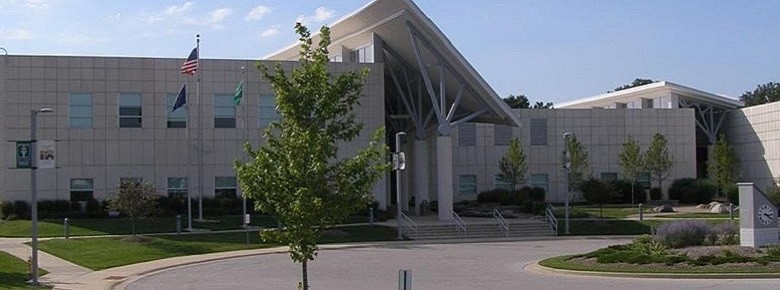
Ivy Tech Community College is a public vocational school that began in 1963. With several learning centers and campuses around Indiana, Ivy Tech Community College strives to make public education accessible for anyone hoping to gain educational advancement.
ITCC has a variety of associate degree programs and career and technical certifications.
- AAS in Cyber Security
- AS in Cyber Security
Ivy Tech Community College of Indiana is accredited by the Higher Learning Commission of the North Central Association of Colleges and Schools.

Since its commencement in 1968, Lake Superior College has gone through many changes to expand into the vast community college that it is today. Lake Superior offers many diploma, certificate, and associate degree programs for students to choose from. This public college strives to make education affordable for all.
- AAS in Network Administration and Cybersecurity
Lake Superior College is accredited by the Higher Learning Commission.

Minnesota State College—Southeast opened in 1949 as a public, academic facility. Today, MSC offers dynamic hands-on learning options to students looking to earn a 2 year degree that can be moved to a 4 year college or used for career advancement. Minnesota State College also has several diploma and vocational certificate programs available.
- AAS in Cyber and Information Security
Minnesota State College Southeast is accredited by the Higher Learning Commission.

Begun in 1997, Minnesota West Community and Technical College is a public learning institution that provides an extensive collection of academic programs that help students acquire associate degrees, diplomas, and career certificates.
Students at MWCTC can participate in classroom instruction through an online platform or traditional on-campus options.
- AAS in Information Security and Assurance
Minnesota West is accredited by the Higher Learning Commission.

Mohave Community College began in 1970. Offering a variety of associate degrees, career diplomas, or vocation certifications, Mohave Community College holds classes in traditional classroom settings, as well as night, weekend, online, and hybrid course options.
- AAS in Cybersecurity and Network Support
Mohave Community College is accredited by the Higher Learning Commission.

Palo Alto College has been providing quality instruction to a diverse community since its beginnings as a public school in 1985. With degree paths that lead to associate degrees in arts, science, applied science, and teaching, PAC provides student-centered instruction in all academic areas. Students at PAC are expected to learn critical thinking and leadership skills.
- AAS in Information Assurance and Cybersecurity
Palo Alto College is accredited by the Southern Association of Colleges and Schools Commission on Colleges.

Inspiring students to gain higher learning since 1958, Prince George’s Community College provides public education to more than 40,000 students annually. Students at PGCC have access to more than 100 study areas that lead to associate degrees, workforce development, or vocational certifications.
Popular areas of study include education, technology, and science.
- AAS in Cybersecurity
PGCC is accredited by the Middle States Commission on Higher Education.

Opened in 1963, Quinsigamond Community College is one of the most affordable public schools in the state. Offering more than 150 academic programs, QCC awards associate degrees and workforce certifications to thousands of students every year.
Many students attending QCC decide to transfer into 4 year schools by utilizing its guaranteed acceptance program, which allows students to transfer into one of its sister schools.
- AS in Computer Systems Engineering Technology – Cybersecurity
QCC is accredited by the New England Association of Schools and Colleges.

Saint Leo University has been offering a private Christian learning option for students since 1889. All academic programs at Saint Leo University have liberal arts foundations and low student-to-teacher ratios. Program options at Saint Leo University include associate degrees, bachelor’s degrees, and graduate program studies.
- AA in Cyber Security
Saint Leo University is accredited by the Commission on Colleges of the Southern Association of Colleges and Schools.
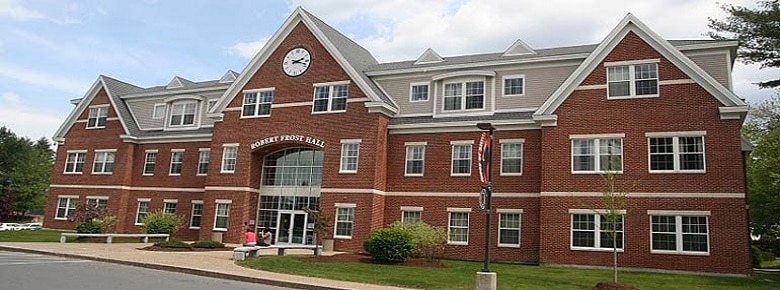
Southern New Hampshire University offers an Associate in Cyber Security. Graduates often pursue careers as cybersecurity specialists, technicians, or analysts. The program’s 60 required credits can all be earned online, including those from valuable online cyber labs. Courses cover key topics like cybersecurity, computer networking, operating system security, and human and legal factors in security.
- AS in Cybersecurity
Southern New Hampshire University is accredited by the New England Commission of Higher Education.

Providing a public education since 1975, Southern State Community College is divided among four campuses to assist students in obtaining associate degrees. SSCC works to ensure students are getting an education that is aligned with the community’s vocational needs.
Bachelor’s and master’s degrees can be accessed at SSCC through partnership universities. Online programs are also available.
- AAS in Computer Technology – Cybersecurity
Southern State Community College is accredited by the Higher Learning Commission.
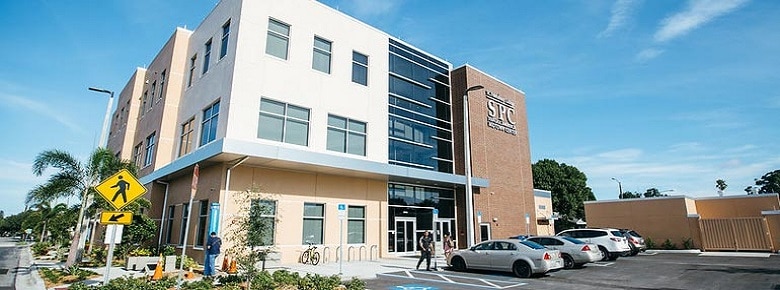
St. Petersburg College, created in 1927, was the first public college in FL to offer a 2 year degree. St. Petersburg College also has an assortment of bachelor’s degree options. They serve more than 29,000 students annually and offer online and in-class learning options.
- AS in Cybersecurity
St. Petersburg College is accredited by the Southern Association of Colleges and Schools Commission on Colleges.

Opened in 1946 as a public, academic school, SUNY Broome Community College is part of the System Universities of New York. SUNY Broome Community College offers associate degree and technical certificate programs to students looking to gain higher education or career advancement.
Some programs offered at SUNYBCC include Cybersecurity, Healthcare, and Liberal Arts.
- AAS in Computer Security and Forensics
SUNY Broome Community College is accredited by the Middle States Commission on Higher Education.

The University of the Potomac has been offering learners a private education since 1991. Expanding educational options for students by offering online, hybrid, and campus-based instruction is an essential aspect of UOTP’s values. With a multitude of program options, students at UOTP can earn associate, bachelor’s, and graduate degrees.
- AS in Network Security Management
The University of the Potomac is regionally accredited by the Middle States Commission on Higher Education.

Virginia Western Community College began offering public education in 1966. With about 12,000 students attending several discipline areas, VWCC maintains small class sizes to help provide individual student attention. Students at VWCC can obtain associate degrees in the arts, applied science, or science through several program paths.
- AAS in Cyber Security and Network Administration
Virginia Western Community College is accredited by the Southern Association of Colleges and Schools Commission on Colleges.

With over sixty-five academic majors, Westchester Community College has been helping the community earn associate degrees and vocational certifications since 1947. This public community college gives students flexible learning choices that include distance learning, hybrid classes, and traditional learning options.
Serving thousands of students every year, WCC strives to meet the needs of every learner.
- AAS in Cybersecurity
Westchester Community College is accredited by Middle States Association of Colleges and Secondary Schools.

Offering public education options to the community since 1926, Western Nebraska Community College enrolls almost 2,000 students annually in its associate, diploma, and certificate programs.
WNCC has a full range of majors, including studies in business, health science, education, and technology. Many programs offered at WNCC can be completed online.
- AA in Cyber Security
Western Nebraska Community College is fully accredited by the Higher Learning Commission.
Getting Your Associate’s Degree in Cyber Security Online

Jobs in cyber security are very much needed right now, and the pay is typically good. With the current availability of financial aid and convenient online programs, there’s likely never been a better time to earn your associate’s degree online.
Numerous programs can be taken entirely online, and many of them have CAE IA/CD certification. These types of programs can usually be completed in two years or less and often lead to excellent government jobs. You don’t have to wait another day. You can look for programs to apply for today.

